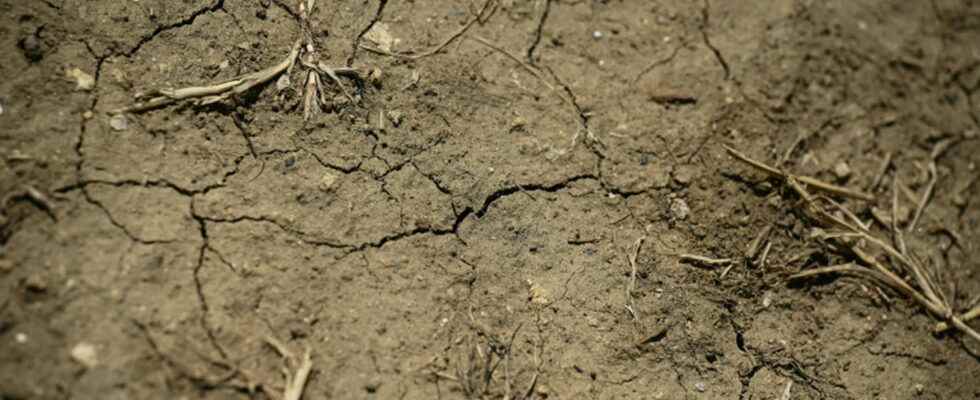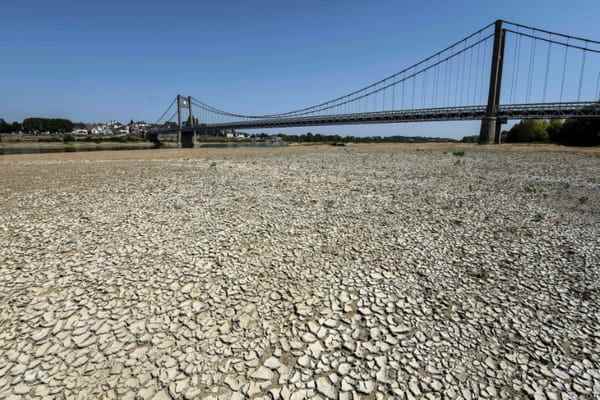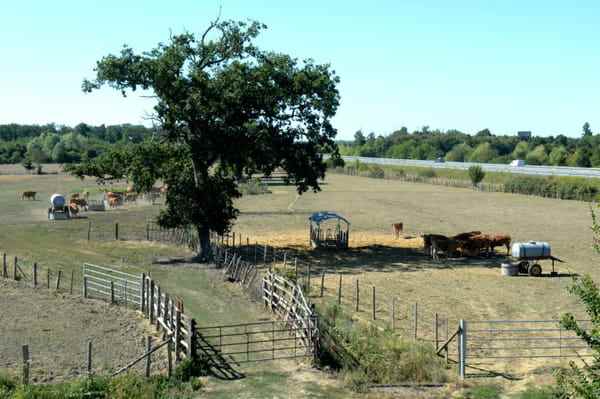The exceptional and early heat wave which will hit France until the weekend, a new sign of climate change, begins on Tuesday in the South-West, reinforcing the worrying dryness of the soil and the risk of fires.
With the arrival of hot air from the Maghreb via Spain which is already suffocating, the south-west of the country will be affected first on Tuesday with temperatures of up to 36°C, but that’s all France which will be hit gradually by the weekend, before a drop in temperatures expected probably on Sunday.
An unequivocal sign of global warming, heat waves are multiplying and intensifying all over the world and France is not spared.
Once again, the mercury will panic this week: 35°C to 39°C expected during the peak between Thursday and Saturday in the southern half, with peaks over 40°C locally in the South-West, according to Meteo France. And between 30°C and 35°C in the northern half on Friday and Saturday.
So Prime Minister Elisabeth Borne brings together prefects and regional health agencies on Tuesday to ensure “that all the devices are in place” to protect the most vulnerable, and the Minister of the Interior sent a telegram to the prefects, including the AFP has knowledge, which invites them to mobilize “personally”.
In Bordeaux already, we are preparing. “We have purchased foggers, which have just arrived, which we will install in public spaces, both in city squares which are ovens, or spaces such as kindergarten dormitories and senior residence halls. “, explains Sylvie Justome, Assistant for Health and Seniors.
Metropolitan France has already experienced more exceptional temperatures in June. The absolute record dates from June 2019, with 46°C in the shade in Vérargues (Hérault) but it was at the very end of the month (June 28).
– “summer of all dangers” –
This wave is thus the earliest, ahead of those of 2017 and 2005 which began on June 18. “We could reach 40°C for the first time so early in the season,” Olivier Proust, forecaster at Météo-France, told AFP on Tuesday.
A precocity which weighs on the organisms with longer days and shorter nights in June than in July or August.
This heat wave, which comes after a particularly hot and dry spring, will further aggravate the dryness of the soil, especially agricultural ones.
“The drought will unfortunately increase with the high temperatures expected in the coming days,” said Matthieu Sorel, climatologist at Météo-France, on Tuesday. “Soil moisture levels are very low across France, worthy of the end of July”.
As for the water tables, which even heavy summer precipitation cannot recharge, they are falling, with a “worrying” situation in certain regions such as Vendée or PACA, according to the monthly bulletin of the Geological Research Bureau and mining, published on Tuesday.
In this context, 36 departments restrict the use of water.
Extreme heat is particularly risky for the elderly, vulnerable people or infants, but also for outdoor workers.
As on this construction site of the tram which must connect the center of Bordeaux to the airport of Mérignac. “This week we are going to attack at least at 7 am. Maybe 6 am”, explains Aurélien Theillaud, works director. And “the union minimum is three liters of water per employee per day”.
It is also in this stifling heat that more than 500,000 high school students will work Wednesday for 4 hours on the writing of philosophy.
This episode corresponds to a “heat wave”, i.e. high temperatures for several consecutive days (the national thermal index must reach 25.3°C at least one day during the episode, be higher than 23.4°C for at least three days and not once fall below 22.4°C). The index should reach 27°C this week, according to Météo-France.
But it is likely that the “heat wave” threshold, which takes into account the danger that day and night heat represents for the population, will be reached in several departments from Thursday, triggering the establishment of orange vigilance.
All rights of reproduction and representation reserved. © (2022) Agence France-Presse


